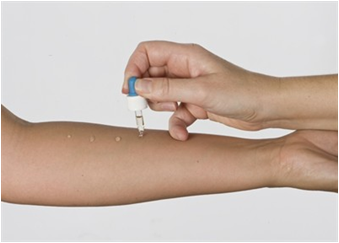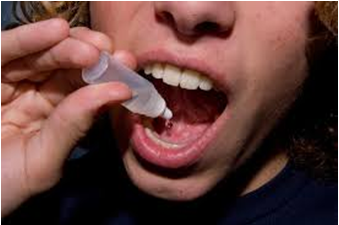To conduct this test, a drop of a solution containing the possible allergen is placed on the skin and the solution is allowed to enter the skin through a series of scratches or needle pricks. An allergic reaction is identified with the skin developing a red, raised itchy area (called a wheal). This positive reaction proves that the individual is allergic to the allergen.
Skin testing is fast and typically, marked with an appearance of a positive reaction within 20 minutes. The skin can also show a delayed reaction of redness and swelling after several hours of skin testing, which may usually disappear in 24 to 48 hours. However, any allergic reactions should be promptly reported to the allergy doctor or nurse.

Skin Prick Test
In this alternative way of allergy treatment, the patient is administered small allergen doses under the tongue. Thus gradually, the patient develops a boosted tolerance to the allergen substance and reduces symptoms. This gradual and long term treatment has been known to be effective in people with allergic rhinitis, allergic asthma, conjunctivitis (eye allergy) or stinging insect allergy. With boosted tolerance, the sensitivity to allergens is decreased and after the treatment is stopped the individual experiences lasting relief. Thus, making it a cost effective beneficial treatment approach for many people.

Immunotherapy Sublingual
Immunotherapy ( SLIT )
Both children and adults can benefit from this therapy, although it is best to avoid treating children under age five with this therapy. Younger children would find it difficult to express clearly any adverse symptoms they may experience and cooperating in the test methodology. Also, in older adults, before commencing with this allergy shot treatment, it is essential to consider conditions such as cardiac disease and discuss first with your allergist / immunologist.